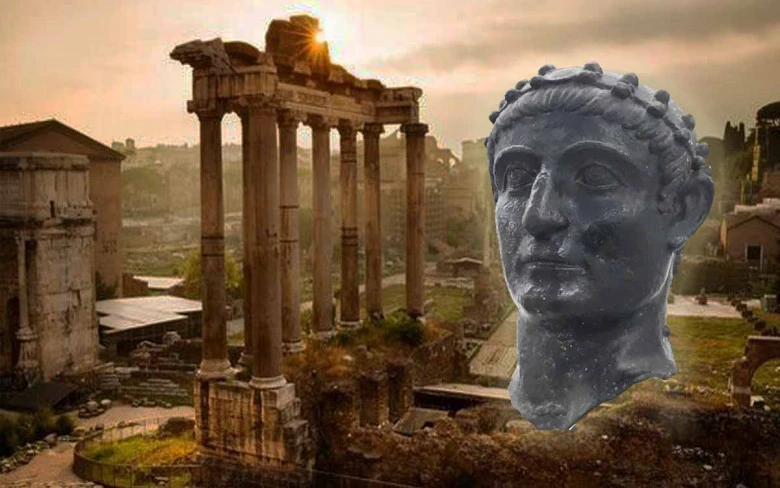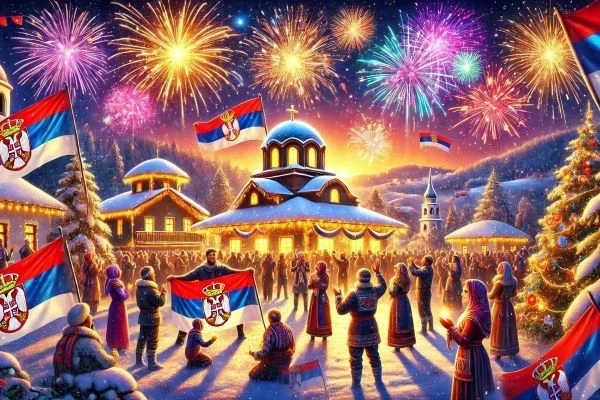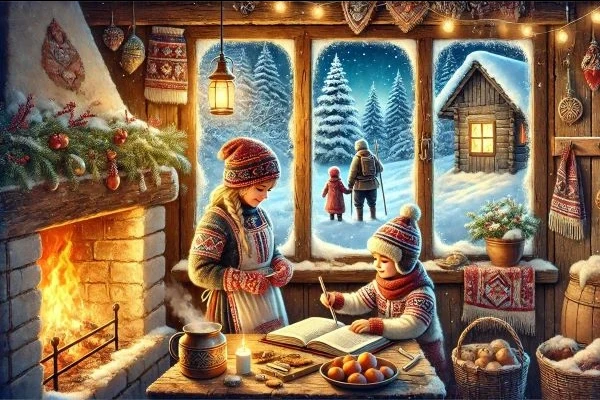- Home
- Blog
- Get to know Serbia
- ROMAN EMPERORS FROM THE SOIL OF TODAY'S SERBIA
ROMAN EMPERORS FROM THE SOIL OF TODAY'S SERBIA

It is not unknown that a really large number of Roman emigrants originate from the territory of today's Serbia. The number of emperors from this area is often related to the warrior spirit of the people from this area and the long-standing tendency to build a fighter and warrior from the peasants.
All Roman emperors came from one of the three areas of today's Serbia: from the area of "Pannonia" and the area of today's Sremska Mitrovica, from the area around Nis (the so-called Nissus) and from eastern Serbia (around Zajecar and the famous Roman city of Felix Romuliana).
Today's Sremska Mitrovica was the administrative center of the Eastern Roman Empire.
Here is a list of the most influential emperors from the area of today's Serbia.
Trajan Decius (Gaius Messiah Quintus Trajan Decius)
Trajan Decius was the first Roman emperor born in Serbia around 201 in Budalija, near Sirmium - near today's Sremska Mitrovica.
The army elected him emperor in 249, and he died in his 50th year in the battle against the Goths.
He was the first Roman emperor to die in battle, after which he was soon proclaimed a deity.
Hostilian (Gaius Valens Hostilian Messianic Quintus Augustus)
Born around the year 230 in today's Sremska Mitrovica, Hostilian was the younger son of Trajan Decius.
After his father and brother were killed, and after Trebonia Gala was elected emperor by the army. Hostilian was granted the title of emperor and took over part of the government.
He ruled for only a year. He was the first emperor to die a natural death, more precisely from the plague.
Claudius the Gothic (Marcus Aurelius Valerius Claudius Augustus)
Claudius the Gothic, was also born in the capital of the Eastern Roman Empire - today's Sremska Mitrovica.
He is known for ordering the execution of a Christian monk on February 14th, 269, who later became known as St. Valentine.
He died of the plague in early 270.
Quintil (Marcus Aurelius Claudius Quintil Augustus)
Quintil was the brother of Claudius Gothic. After the death of his brother, the army banned him as emperor.
There are versions of how he died: from killing himself to being killed by his army because of the discipline he tried to introduce.
Aurelian (Lucius Domitius)
Aurelian was born in the vicinity of Sirmium in 214, on a small rural estate. He was known as a supporter of Mithraism and the cult of the Invincible Sun, as well as a fiscal reformer.
During his reign, the Gallic Empire was returned to Rome. He ruled for five years, when he was killed by the Praetorian Guard on his way to Asia Minor, at a time when he was planning to conquer Mesopotamia.
Prob (Marcus Aurelius Prob August)
Prob ruled from 276 to 282. He was killed by his own army, because he made them dig canals on a hot summer day. Later, they repented and buried him with all the royal honors.
He is known for being the first to allow the grapevine to be planted outside Italy, on Fruska Gora, as well as near Smederevo on Zlatni brdo, where the autochthonous grape variety Smederevka was conceived.
Maximian (Marcus Aurelius Valerius Maximian Hercules Augustus)
Maximian was born near Sirmium around the year 250. Diocletian proclaimed him Caesar in 285, and the following year he became Augustus, equal to Diocletian. He ruled together with Diocletian from 286 to 305, when they abdicated together.
He returned to the throne in 310, however, he was overthrown by the legitimate ruler Constantine I, after which Maximian committed suicide.
Galerius (Gaius Galerius Valerije Maximian August)
Galerius was born and buried in Felix Romuliana (Gamzigrad), near Zajecar, where he built most of the buildings whose remains we can still see today. He built this palace in the 3rd and 4th century for himself and his mother Romula, after whom he named it.
Although he was known as a great persecutor of Christians, he repented before his death and passed the Edict of Tolerance.
North II (Flavius Valerius North Augustus)
He was born in Naisus, today's Nis. He ruled from 306 to 307, when Maxentius captured him and forced him to commit suicide.
Constantine I the Great (Flavius Valerius Aurelius Constantine Augustus)
Constantine the Great was born in Nis, on February 27, 272, to father Constantius Chlorus and mother Helen. He is remembered as the greatest emperor of the late Roman Empire.
He is considered one of the most important figures in the history of Europe and Christianity. He ruled from 306 to 337. He passed the Edict of Milan in 313, which proclaimed religious equality and an end to the persecution of Christians.
He used this period of peace to build New Rome - Constantinople.
Licinius I (Gaius Valerius Licinianus Licinius Augustus)
Licinius I was also born near Felix Romuliana. Together with Constantine the Great, he passed the Edict of Milan and became co-ruler with it, even marrying his sister.
He waged two civil wars against Constantine: the first ended in peace, although Licinius suffered a heavy defeat, and the second, which was in 324, he lost.
He was captured and taken prisoner in Thessaloniki, and executed together with his son on Constantine's orders.
Constantius II (Flavius Julius Constantius Augustus)
Constantius II was the middle son of Constantine the Great
He was appointed Caesar by his father and was given control of the entire east of the empire, while his two brothers received the rest. He was on the side of the Arian sect and after the Civil War he became the sole master of the empire. He died suddenly.
Jovian (Flavius Jovian Augustus)
Jovian was born around 331 in Singidunum, today's Belgrade, in a peasant family. He ruled for a total of 236 days.
He died suddenly in his sleep, and the death of this ruler remained a veil of secrecy. The version that is generally accepted and that has gone down in history is that Jovian died from poisoning with bad coal, which burned the stove in his room.
Constantius III (Flavius Constantius Augustus)
Constantius III was born in Naisus. He received the title of patrician due to his military merits. He achieved great military victories, however, he died in vain, after only a year spent on the throne.
His son Valentinian III was the last significant ruler of the Western Roman Empire.
Interesting facts: It is enough to mention about the benefits of this area for ancient Rome that emigrants from the area of today's Serbia represent almost a fifth of all rulers of the Roman Empire.
If you are a fan of the history of ancient Rome and its rulers, get acquainted with the offer prepared for you by Serbianshop, just a click away from you.
Read also
Who was Saint Sava and what was his contribution?
"Saint Sava: A Beloved Serbian Saint with a Rich Legacy and Cultural Significance"
…Serbian New Year: Tradition, Customs and How to Celebrate it
The Serbian New Year, also known as the Orthodox New Year, is celebrated on…
Gifts Inspired by Serbian Culture: Authentic Ideas for the Holidays
The holidays are a time of giving, and finding the perfect gift is often a challenge.…
Traditional Serbian Christmas Customs: How to Cultivate Them in Modern Times?
Christmas is the most joyous holiday in Orthodox Christianity, a time when families…
How to Bring the Spirit of Orthodox Tradition into Your Home This Winter?
Winter is the perfect time to bring warmth, togetherness and the spirit of Orthodox…
Serbian Souvenirs: Perfect New Year's Gifts for All Tastes
New Year is the time of giving, and what is more beautiful than a gift that…
How to stay productive and not waste an entire day on Black Friday shopping
Black Friday is a day full of amazing discounts, but it can easily become exhausting…
Folk Beliefs and Customs for Saint Aranđel - Assembly of Holy Angels
Saint Michael the Archangel, who is celebrated…
Folk Beliefs and Customs for Đurđić - Glory of St. George
Đurđić, the feast of St. George, celebrated on November 16, is one of the most…
Smart shopper's guide: How to make the most of Black Friday
Black Friday is the most famous shopping event of the year that offers huge…
The history of Black Friday: How it all began and why it continues
Black Friday, known as the biggest discount day of the year, today attracts…
Gifts for Children in the Diaspora: How to Nurture the Connection with the Language, Culture and Tradition of Serbia
Children who grow up in the diaspora face specific challenges - they lose contact…

Apply for newsletter
Sign up for the Serbianshop newsletter and get a 10% discount.













